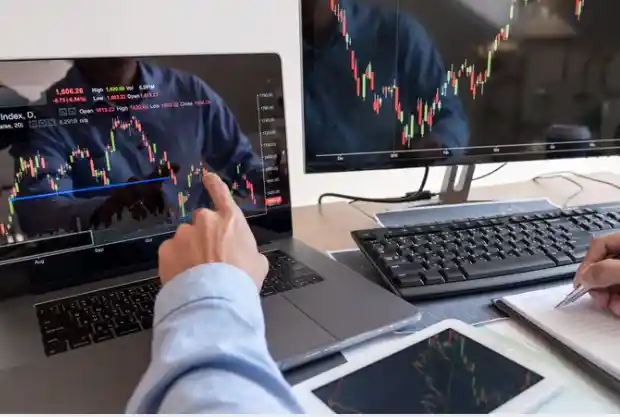5StarsStocks.com Nickel: A Guide to Bright Investment Opportunities

Nickel, a silvery-white metal, is becoming increasingly important today. From electric cars to renewable energy systems, nickel is essential to many rapidly growing industries. In this article, we’ll take a closer look at how nickel is used, why it’s valuable, and how investing in nickel stocks through 5StarsStocks.com Nickel could be an excellent opportunity for anyone looking to secure a brighter financial future. We’ll cover nickel’s benefits, risks, and investment methods in simple, straightforward language.
Why Nickel Matters in Modern Industry
Nickel is used in a lot of places you might not expect. For instance, it’s a key ingredient in stainless steel, which we find in buildings, appliances, and even cars. Stainless steel is strong, durable, and rust-resistant, all thanks to nickel.
Another crucial use of nickel is in batteries, especially those that power electric vehicles (EVs). As EVs become more common, the demand for nickel is skyrocketing. Beyond steel and batteries, nickel is also used in electronics and renewable energy systems, like wind turbines and solar panels.
How 5StarsStocks.com Nickel Helps Investors
Understanding the nickel market and finding good opportunities can be challenging for investors. This is where 5StarsStocks.com comes in handy. The website offers up-to-date nickel market research, industry experts’ analysis, and easy-to-use investment tools. This helps investors understand where the nickel market is heading and how they might benefit. The website provides information for new and experienced investors, making exploring and investing in nickel stocks easy.
Here’s what 5StarsStocks.com offers:
Detailed Market Research
The website provides regular reports on the nickel market, helping investors understand the current trends and prices. These reports are helpful information about how the nickel industry is doing and what might happen next. This way, investors can stay up-to-date on changes in the market and make better decisions about their investments.
It’s like having a detailed guide about what’s happening in nickel. Even if you’re new to investing, these reports can give you the knowledge to make smarter choices about buying or selling nickel-related assets.
Expert Guidance
This website connects investors with experts with lots of experience in the nickel industry. These seasoned analysts give helpful advice and recommendations based on the latest market data. Since the nickel market can change quickly, having expert advice can make a big difference.
They guide investors on when it might be a good time to buy, sell, or hold on to their investments. It’s like having a coach who knows a lot about nickel to help you decide what to do so you feel safe and confident.
User-Friendly Platform
The website is designed to be simple to use, making it easy for investors to navigate and find what they want. Everything is organized in a way that makes sense so users can quickly locate information about nickel investments. Whether you’re checking prices or reading the latest market updates, you don’t have to dig around to find it.
This makes the investing process smoother, even for beginners. The user-friendly setup ensures everyone, even those new to investing, can track their nickel investments without confusion.
Key Drivers of Nickel Demand
Nickel is more than just a basic metal—it plays a central role in various industries that are expected to grow even further. Below are the main factors driving up demand for nickel and making it an attractive investment.
1. Electric Vehicles (EVs)
Batteries power electric cars, and nickel is a significant component in these batteries. Using nickel in batteries makes them more efficient and long-lasting. This is one reason electric car manufacturers buy up nickel at record rates. As more countries push for cleaner energy, more people will likely buy EVs, increasing the need for nickel.
2. Stainless Steel Production
Nickel gives stainless steel its anti-rust properties, making it ideal for many applications, such as construction, transportation, and consumer goods. Because of its versatility, the demand for stainless steel is continually rising, especially in countries building up their infrastructure, like China and India.
3. Renewable Energy
Nickel is also essential for renewable energy sources, which are growing rapidly. Wind turbines and solar panels need nickel to function well and last longer. In addition, energy storage systems often use nickel-based batteries. As governments invest more in clean energy, the demand for nickel will likely keep increasing.
How to Invest in Nickel Stocks
There are several ways to invest in nickel. Some investors prefer to buy shares of companies that mine and produce nickel, while others choose exchange-traded funds (ETFs) or commodities trading. Let’s look at each option in more detail.
1. Direct Investment in Nickel Mining Companies
One way to invest in nickel is by purchasing shares of companies that mine and sell it. This direct investment lets investors benefit from the success of individual companies. Some well-known nickel producers include Norilsk Nickel, Vale S.A., Glencore, and BHP Group. These companies are leaders in the global nickel market, and investing in them can offer significant returns as nickel demand grows.
Advantages:
High Potential for Growth: As nickel becomes more valuable, companies that produce it are likely to grow as well.
Direct Exposure to the Market: Owning a nickel mining company’s shares allows investors to benefit directly from its performance.
2. Nickel ETFs
For those who prefer a diversified approach, nickel ETFs (exchange-traded funds) offer exposure to multiple nickel companies in a single investment. ETFs are a safer way to invest in nickel because they spread the risk across many companies rather than depending on the performance of just one.
Advantages:
Diversification: By investing in various nickel stocks, ETFs reduce the risk associated with any single company.
Lower Fees: ETFs are typically less expensive to invest in compared to mutual funds.
3. Commodities Trading
Investing in nickel through commodities trading is another option, but it requires experience. This method allows investors to buy and sell nickel futures and contracts to purchase nickel at a certain price on a specific date. However, this method can be risky because prices can fluctuate rapidly.
Risks of Investing in Nickel
While nickel offers a promising investment, there are risks involved. Here are some potential challenges to keep in mind:
Price Volatility
Nickel prices can go up and down quickly because of changes in supply and demand. When demand is high, prices usually go up; when supply is strong, prices might decrease. Economic events, like a recession, can also make prices change fast. Natural events, such as earthquakes or floods, may interrupt mining, causing prices to rise due to limited supply.
Investors must be ready for these price changes, as they can happen suddenly. People who buy and sell nickel often closely monitor market trends to make smart decisions.
Supply Chain Disruptions
Sometimes, problems in the supply chain make nickel prices rise. For example, mining strikes or delays in shipping can reduce how much nickel is available, causing prices to increase. Mining is a tough job with demanding conditions, and workers sometimes stop working when conditions are unsafe, leading to strikes.
It also affects supply if the nickel can’t be transported quickly due to bad weather or port issues. When there’s less nickel in the market, prices increase. This is why maintaining a steady supply chain is important for nickel prices.
Regulatory Issues
Government laws about the environment can affect nickel mining and sales. For example, strict environmental laws may force nickel companies to make costly changes to protect the land, air, and water. These changes can make mining more expensive, reducing profits for companies.
Some areas may limit how much mining can happen to protect wildlife and ecosystems. When mining becomes too expensive, some companies may slow down production, affecting the overall supply of nickel and its market price.
Investment Strategies
To succeed with nickel investments, it’s essential to use effective strategies. Here are some of the most popular approaches:
1. Long-Term Investment
Holding onto investments for an extended period is often a good strategy for commodities like nickel, which are likely to increase in demand over time. This strategy allows investors to benefit from long-term growth in the nickel market.
2. Dollar-Cost Averaging
Investing a fixed amount of Money at regular intervals helps reduce the impact of market fluctuations. This strategy allows investors to purchase more shares when prices are low and fewer when prices are high, averaging the cost over time.
3. Diversification
Adding nickel investments to a broader portfolio that includes stocks, bonds, or other metals can reduce risk. Diversifying your assets allows you to balance potential losses in one area with gains in another.
Keeping Track of Nickel Market Trends
Monitoring trends in the nickel market is essential to make informed investment choices. Below are some of the key trends to watch:
Electric Vehicle Expansion
The EV market is one of the biggest drivers of nickel demand. Many countries are offering incentives for electric cars, which means the demand for nickel will likely keep growing. An eye on the EV market can explain where nickel prices might go.
Growth in Renewable Energy
Renewable energy projects are rising worldwide, and nickel is critical. As solar and wind power expand, so will the demand for nickel in energy storage solutions. Watching government investments in renewable energy can give you an idea of how this will affect nickel demand.
Economic Recovery
As economies recover and infrastructure spending increases, the need for nickel will rise. Construction projects, in particular, will increase demand for stainless steel, which requires nickel. Following economic news can help investors understand how these changes might impact nickel prices.
Conclusion
Investing in nickel through 5StarsStocks.com Nickel is a way to tap into a growing industry that’s important for the future of technology and clean energy. With rising demand from electric vehicles, renewable energy, and stainless steel production, nickel presents a unique opportunity for investors. By taking advantage of the tools and resources offered on 5StarsStocks.com, investors can make informed decisions, minimize risks, and potentially achieve strong returns.
Ultimately, a successful nickel investment strategy involves careful research, understanding market trends, and focusing on long-term growth. By following these guidelines, investors can build a portfolio that aligns with their financial goals. You can also know about ATFBooru by going through that blog.
FAQs
What is the primary use of nickel?
Nickel is primarily used in producing stainless steel, enhancing strength, corrosion resistance, and durability. Additionally, nickel plays a critical role in batteries, especially for electric vehicles, due to its high energy density and stability in lithium-ion batteries. These qualities make nickel valuable for various industries, including construction, energy, and consumer electronics.
How does 5StarsStocks.com assist investors?
5StarsStocks.com offers investors comprehensive research tools, expert insights, and a user-friendly platform. This helps users make more informed decisions in the nickel market, enabling them to capitalize on emerging trends and opportunities. The platform also guides portfolio diversification and up-to-date information on nickel-related stocks and commodities, making it easier for investors to navigate market fluctuations.
What risks are associated with investing in nickel?
Investing in nickel involves several risks, such as price volatility driven by global supply-demand imbalances, geopolitical factors, and environmental regulations. Supply chain issues, like mining disruptions or export restrictions from key producers, can also impact Availability and prices. Furthermore, regulatory changes, such as stricter environmental standards, can affect production costs, potentially reducing profitability for nickel-based investments.
How can I invest in nickel?
Investors can invest in nickel through various avenues, such as buying shares in companies involved in nickel mining, purchasing nickel-focused ETFs, or trading commodities. Investing in nickel can provide portfolio diversification and exposure to the growing demand for battery metals. However, it’s essential to understand market conditions, investment fees, and associated risks before committing to any investment in this sector.
Why is nickel important for electric vehicles?
Nickel is crucial for electric vehicles because it enhances battery efficiency, capacity, and lifespan, particularly in high-performance lithium-ion batteries. This makes EVs more cost-effective and appealing to consumers, as longer-lasting batteries reduce the need for frequent replacements. Additionally, nickel’s properties help manufacturers achieve higher energy density, which translates to extended driving ranges, a vital feature for the widespread adoption of electric vehicles.





